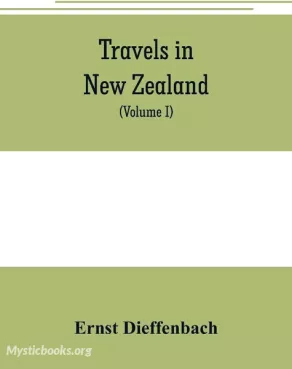
Timeline
Title
Country/Nationality
Ernst Dieffenbach
Ernst Dieffenbach, an extraordinary figure of the 19th century, was a pioneering naturalist and explorer who significantly contributed to the understanding of New Zealand's flora, fauna, and indigenous Māori culture. His unwavering dedication to science, adventurous spirit, and profound principles left a lasting impact on the fields of anthropology, geology, and natural history. This essay delves into the life of Ernst Dieffenbach, his principles, notable achievements, philosophical outlook, and his enduring legacy.
Who was Ernst Dieffenbach?
Ernst Dieffenbach was born on February 27, 1811, in Darmstadt, Germany. From a young age, he exhibited a profound curiosity about the natural world, igniting a lifelong passion for exploration and scientific discovery. Dieffenbach studied medicine and earned his medical degree from the University of Giessen. During his studies, he developed a keen interest in natural history and geology.
Principles and Values:
Dieffenbach was known for his strong principles and ethical approach to scientific exploration. As he embarked on his journey to the South Pacific, he was determined to engage with the indigenous cultures he encountered respectfully. He believed in observing and documenting customs and traditions without imposing Western ideals or judgments. This approach laid the foundation for modern ethnographic research and helped foster cross-cultural understanding.
Notable Achievements and Contributions:
Exploration of New Zealand: In 1839, Dieffenbach joined the New Zealand Company's expedition as the naturalist and surgeon. His contributions to documenting the island's unique flora and fauna were invaluable.
Study of Māori Culture: During his stay in New Zealand, Dieffenbach immersed himself in the Māori way of life, learning the language and customs. His observations and interactions with the Māori people provided valuable insights into their culture and society.
Geological Research: Dieffenbach conducted extensive geological research, including the study of volcanic formations and geological history. His findings added significantly to the scientific understanding of the region.
Advancement of Anthropology: Dieffenbach's ethnographic work helped lay the groundwork for future anthropological studies in New Zealand and the wider Pacific.
Philosophy:
Dieffenbach's philosophical outlook can be described as a blend of scientific curiosity, respect for indigenous cultures, and a passion for exploration. He believed that scientific research should be conducted with integrity and guided by ethical principles. His interactions with the Māori people were marked by mutual respect and a willingness to learn from their traditions and knowledge.
Legacy and Remembrance:
Ernst Dieffenbach's contributions to science, exploration, and anthropology have been duly recognized and celebrated. His writings and observations formed the basis for numerous scientific studies and inspired future generations of researchers. Dieffenbach's legacy lives on in the many plants and animals named after him, such as the Dieffenbach's rail (Gallirallus dieffenbachii) and the Dieffenbach's snake-necked turtle (Chelodina dieffenbachii).
Though he passed away on October 1, 1855, at the relatively young age of 43, Ernst Dieffenbach's legacy continues to endure. His explorations and scientific insights have significantly enriched the understanding of New Zealand's natural history and cultural heritage. He is remembered not only for his scientific achievements but also for his exemplary principles of respect and cultural understanding during a time when such values were not always prioritized by European explorers.
In conclusion, Ernst Dieffenbach was a remarkable individual whose life was dedicated to the pursuit of knowledge and exploration. His principles of scientific integrity, respect for indigenous cultures, and unwavering curiosity have left an indelible mark on the fields of anthropology, geology, and natural history. Even today, his work continues to inspire researchers and foster cross-cultural understanding, making him an enduring figure in the annals of scientific exploration and cultural appreciation.
Books by Ernst Dieffenbach

Travels in New Zealand with contributions to the geography, geology, botany, and natural history of that country, Vol. I
This captivating travelogue immerses readers in a world of uncharted terrains, remarkable geological formations, and exotic flora and fauna, making it a true treasure trove for adventurers and nature enthusiasts alike. As Dieffenbach ventures deeper...